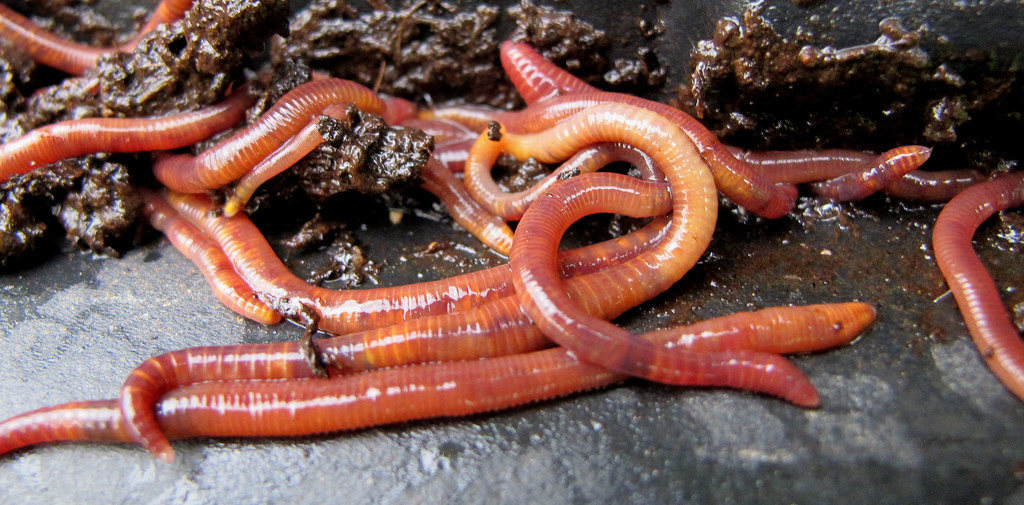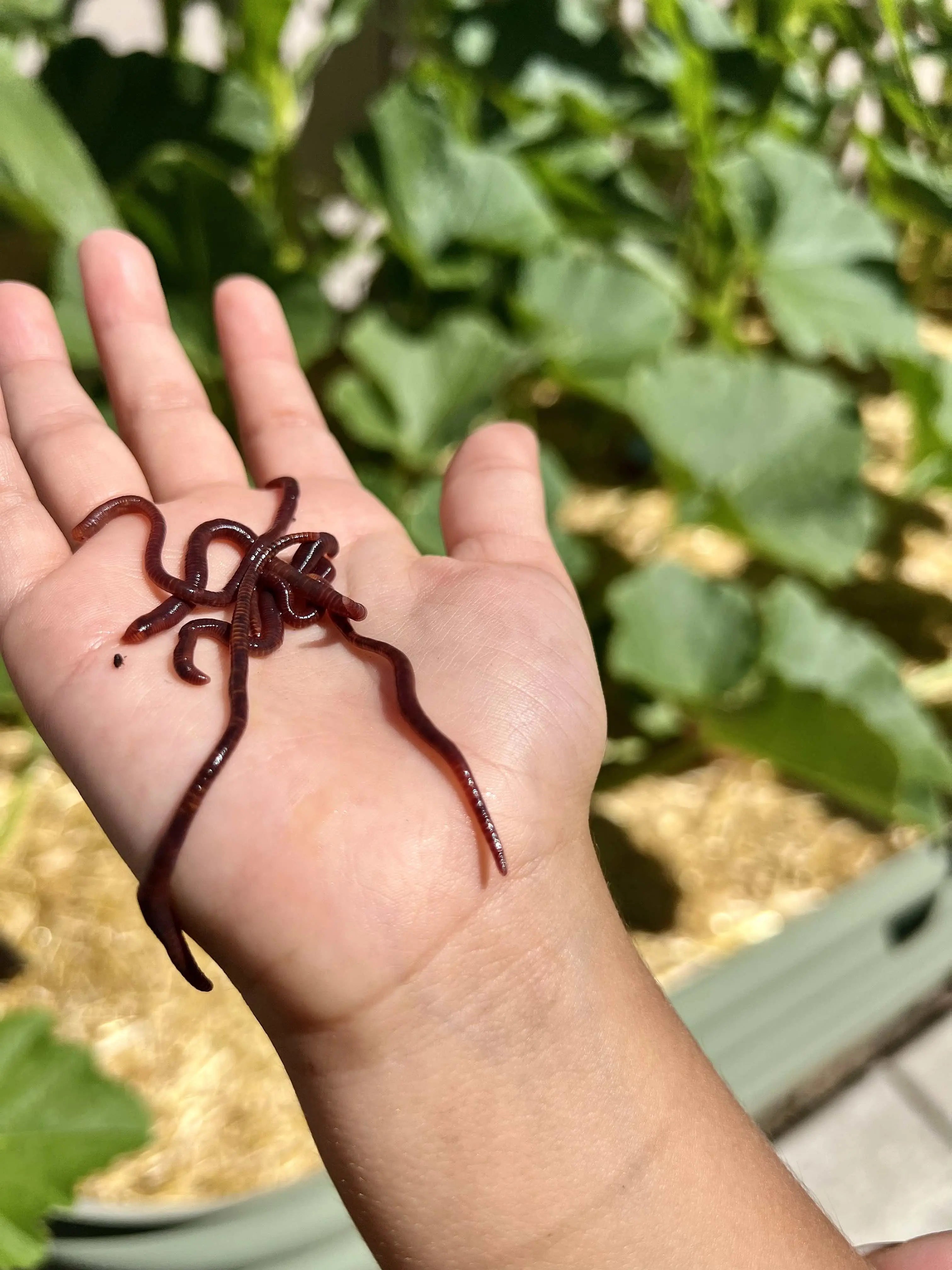Enjoy Healthy, Thriving Grass with the Help of Red Wiggler Express Lawn Care Solutions
Enjoy Healthy, Thriving Grass with the Help of Red Wiggler Express Lawn Care Solutions
Blog Article
Unlock the Tricks of Red Wigglers: Your Guide to Composting Success
The assimilation of red wigglers into composting practices presents a substantial possibility for improving soil wellness and advertising sustainability. Comprehending their needs and actions is critical for enhancing their capacity, from establishing up an ideal worm bin to feeding them the right products.

What Are Red Wigglers?
(Red Wiggler Express)Red wigglers, scientifically called Eisenia fetida, are a types of earthworm mainly made use of in composting because of their amazing capacity to disintegrate raw material effectively. These worms are characterized by their reddish-brown pigmentation and a segmented body, typically determining between 3 to 4 inches in size. Unlike other earthworm varieties, red wigglers flourish in abundant, organic settings, making them perfect for vermicomposting systems.
Native to The United States And copyright, they are frequently located in decaying fallen leaves and compost stacks, where they play an essential function in nutrient recycling. Their adaptation to residing in a wet, cardiovascular setting enables them to take in huge quantities of natural waste, simplifying into nutrient-rich spreadings that boost soil health and wellness.
Red wigglers duplicate swiftly, with a single worm with the ability of producing a number of cocoons weekly, each containing several hatchlings. This quick reproduction rate adds to their performance in composting operations. They like temperature levels between 60 ° F and 80 ° F, and their activity level raises significantly within this variety, more assisting in the decomposition process. Recognizing the biology and actions of red wigglers is important for maximizing their possibility in composting applications.
Advantages of Utilizing Red Wigglers
Using the power of red wigglers in composting supplies numerous advantages that enhance dirt wellness and advertise sustainable waste administration. These amazing organisms efficiently damage down natural issue, changing cooking area scraps and backyard waste right into nutrient-rich vermicompost. This ended up product is incredibly advantageous for plant growth, as it boosts soil structure, enhances wetness retention, and enhances nutrient availability.

(Lake Rhodhiss Bait)Additionally, the presence of red wigglers in your composting system can increase the composting process, producing high-quality garden compost in a fraction of the moment contrasted to conventional approaches. The spreadings produced by these worms are additionally bursting with useful microorganisms that better enhance the soil ecological community.
Establishing Your Worm Container
Producing an effective worm container is a straightforward procedure that can substantially enhance your composting efforts. The very first step is selecting an appropriate container. Worm bins can be made from plastic storage containers, wooden boxes, or readily offered worm containers. Guarantee the container has adequate water drainage and ventilation holes to keep optimal dampness levels and air flow.
Next, prepare the bedding material, which offers as the worms' environment. A mix of shredded paper, cardboard, and coconut coir functions well, offering a comfortable atmosphere for the worms.

Feeding Your Red Wigglers
To ensure the health and performance of your red wigglers, it is important to supply them with a balanced diet that fulfills their nutritional needs. Red wigglers grow on a diverse array of natural materials, which not just provide necessary nutrients yet likewise promote reliable composting.
Begin by incorporating cooking area scraps such as vegetable peels, fruit cores, and coffee premises. Prevent citrus fruits, onions, and garlic, as these can be detrimental to worm wellness. Additionally, present shredded paper, cardboard, and dry fallen leaves to produce a well-aerated environment.
Feeding frequency need to be kept an eye on; generally, worms can take in half their body weight in food weekly. It is essential to stay clear of overfeeding, as excess food can result in undesirable odors and bring in pests. A great practice is to add food in percentages, permitting worms to process it before presenting more.
Preserving dampness levels is likewise vital; the bed linen needs to be damp however not soaked. Lastly, make sure to regularly inspect the temperature level and pH levels of the bin to make sure an optimum environment for your red wigglers, eventually boosting their composting efficiency.
Harvesting and Utilizing Compost
A successful composting process with red wigglers culminates in the rich, dark garden compost called vermicompost, which can substantially improve soil health and plant development. Gathering this nutrient-dense product usually occurs every three to six months, depending on the dimension of your system and the quantity of raw material being processed.
To harvest, carefully different the compost from the worms and any type of undecomposed products. One efficient method includes moving the contents of the container away and adding fresh bed linens and food to the vacant area, encouraging the worms to move. After a few days, the compost can be accumulated from the contrary side.
It is necessary to use vermicompost correctly to optimize its benefits. It can be used as a leading dressing for yard beds, blended into potting dirt, or brewed right into a nutrient-rich liquid plant food referred to as "worm tea." This application technique helps to supply vital nutrients directly to plant origins, promoting much healthier growth. By including vermicompost into your horticulture regimen, you not just recycle natural waste but additionally produce a thriving ecological community that supports lasting gardening techniques.
Final Thought
In summary, red wigglers offer as phenomenal allies in composting initiatives, changing natural waste right into nutrient-rich vermicompost. By recognizing the optimal conditions for their habitat, feeding requirements, and compost Visit Website harvesting techniques, gardeners can enhance soil health and promote plant vitality.
Report this page